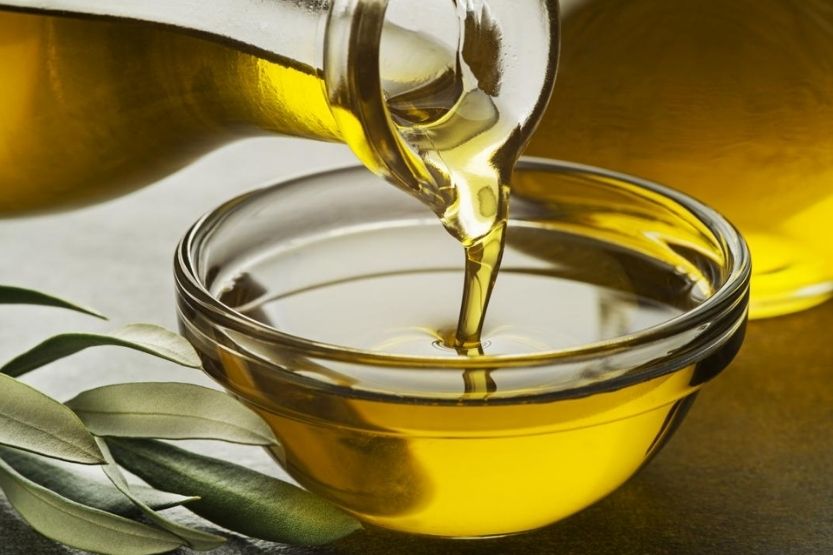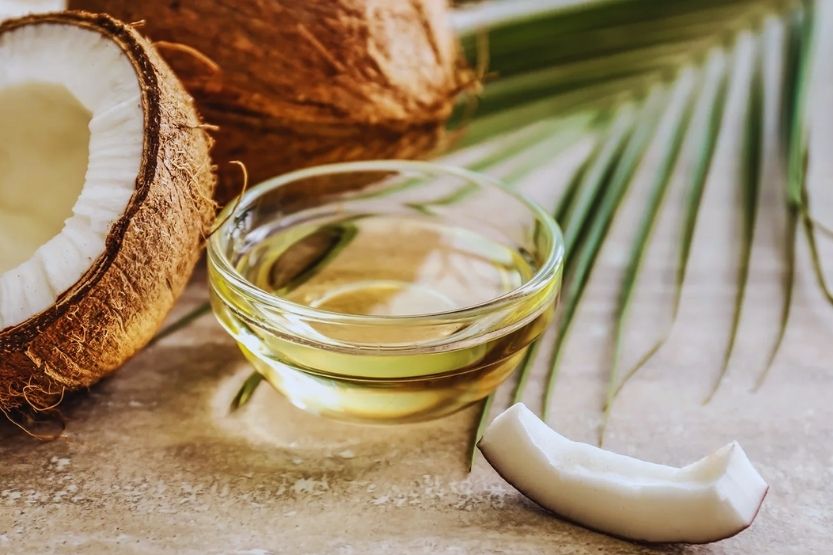Food cooked in olive oil tastes good. But what if you run out of it? Can you use vegetable oil instead of olive oil and not make any difference in the taste of your food?
Olive oils have a distinct flavor that makes your dishes taste special. However, if you run out of it, you can use vegetable oil as a substitute. But since you are just using a substitute, you can’t expect your food to taste as special.
While you can use vegetable oil as a substitute, olive oil offers more benefits because it is more natural. In addition, olive oil’s smoke point is lower than vegetable oil since its fat content is lower. That is one of the reasons why food cooked in olive oil is much yummier.
Read on to learn more about olive oil, how it is different from vegetable oil, and what can happen if you use vegetable oil instead of olive oil.
Can You Use Vegetable Oil Instead of Olive Oil?

Olive Oil Has a Distinct Flavor That It Lends to the Food
If you run out of olive oil, you can use vegetable oil instead. However, be aware that the taste of your food will be affected. Olive oil has a distinct flavor that it lends to the food it is used to cook with, making the dish taste extraordinary.
Olive Oil’s Smoke Point Is Lower Than Vegetable Oil
One of the reasons for this is that the smoke point of olive oil is lower than that of vegetable oil. That means vegetable oil burns faster than olive oil. The fat content of vegetable oil is higher than olive oil. That also means olive oil is healthier than vegetable oil.
Healthier and More Natural Olive Oil
Compared to vegetable oil, olive oil is more natural. Olive oil also offers more health benefits than vegetable oil. It is made from pressed fresh olives. Extra virgin olive oils have retained the most beneficial substances because they are the least processed.
Highly Refined and Neutral-tasting Vegetable Oil
On the other hand, vegetable oils are typically highly refined, neutral-tasting plant oils. Their levels of pro-inflammatory fats are higher, and they are lacking in micronutrients. Other than vegetable oils, you can also use sunflower oil or canola oil as substitutes for olive oil.
Generally, there’s no problem in substituting vegetable oil for olive oil. Can you use olive oil instead of vegetable oil?
You have to stick with it if you want to get the special flavor that olive oil lends to your cooking food. Vegetable oil will not be able to provide that special taste that olive oil provides.
Nature of Olive Oil
Comes From Olive Fruit
The olive fruit is the source of olive oil. Olive oil manufacturers extract the natural juices of olive fruits to produce olive oil. The oil is pressed from the fruit, making it one of the natural plant or vegetable-based oil.
Rich in Monounsaturated Fats
Olive oil is beneficial to your health because it is rich in monounsaturated fats, which can lower cholesterol.
Virgin Olive Oil Contains Antioxidants
An olive oil variety, virgin olive oil, is more beneficial because it has an antioxidant that effectively removes free radicals from your body. Among all organic oil products, olive oil offers the most monounsaturated fat.
Good for Those with Gastritis or Ulcers
Olive oil is good for those with gastritis or ulcers. It can activate pancreatic hormones and bile and help to alleviate the symptoms. Some studies show olive oil can discourage the formation of gallstones.
Has a Low Smoke Point
Since olive oil has a low smoke point, it is the best oil to use if medium to high heat is required for cooking. So, when you want to stir-fry or pan-sear your food, you need to use olive oil. It has a distinct taste that can enhance the natural flavor of foods such as grilled vegetables or pasta.
Nature of Vegetable Oil
Made by Blending Different Oils from Seeds, Fruits, and Nuts
Vegetable oil is also plant-based oil. It is used around the world for cooking. It is usually made by blending different oils from seeds, fruits, and nuts.
Most Common Vegetable Oils
Some of the most commonly known vegetable oils include:
- Corn oil,
- Palm oil,
- Coconut oil,
- Peanut oil,
- Soybean oil, and
- Safflower oil.
Since it is sourced from olive fruits, olive oil is generally classified as vegetable oil.
Contain Substances That Are Beneficial to the Heart
Like olive oil, vegetable oil also offers some health benefits. Most vegetable oil sources also contain substances that are beneficial to the heart. However, vegetable oil has a higher smoke point than olive oil.
Has a Neutral Taste
So, if the food you are cooking requires extremely high temperatures, the best oil you can use is vegetable oil. In contrast to olive oil, vegetable oil tastes neutral. That means it does not register any taste to your tongue or palate.
This property makes vegetable oil good for cooking and baking foods. Can you use olive oil instead of vegetable oil in brownies?
It is not advisable because it will lend its flavor to the taste of the brownies. Vegetable oil is better used here because its neutral flavor will not affect or undermine the flavor that you want your brownies to acquire.
What Are the Differences Between Olive and Vegetable Oils?

While they are both generally classified as vegetable oils, two primary things make olive oil different from vegetable oil:
1. Health Benefits
Both Contain Unsaturated Fatty Acids
Both vegetable oil and olive oil contain unsaturated fatty acids. However, olive oil offers more monounsaturated fats than vegetable oil. These monounsaturated fats include palmitic acid, linoleic acid, and oleic acid. Meanwhile, vegetable oil mostly offers omega-6 polyunsaturated fats.
Anti-inflammatory Monounsaturated Fats in Olive Oil
The monounsaturated fats found in olive oil were proven to be anti-inflammatory and provide health benefits to the heart. Meanwhile, the polyunsaturated fats found in vegetable oil, if you eat it in excess, can affect the health of your heart and can also be pro-inflammatory.
You should also consider that when oil is subjected to several refining processes, the final product will have fewer healthy compounds and lesser micronutrients.
Olive Oil Is the Least Processed Plant-based Oil
Olive oil, unlike vegetable oil, is the least processed plant-based oil. It is rich in antioxidants and anti-inflammatory substances such as:
- Polyphenols,
- Carotenoids, and
- Tocopherols.
It will contain certain micronutrients like vitamins E and K if minimally refined.
Meanwhile, refining vegetable oil destroys antioxidants, micronutrients, and other good plant compounds, such as:
- Coenzymes,
- Polyphenols,
- Phytosterols, and
- Tocopherols.
2. Processing and Flavors
Bleaching
In a typical plant oil extraction process, the oils that have been extracted from the plants are cleaned or bleached with certain chemicals.
Heat
Then they are heated to remove the impurities and extend their shelf lives. As the oil undergoes more processing, more nutrients are lost, and less flavor is retained.
The effect of the manufacturing process is very apparent when you compare the distinct flavor of olive oil with the neutral flavor of vegetable oil.
Olive Oil Undergoes a Simple Manufacturing Process
Olive oil undergoes a relatively simple manufacturing process. The olive fruits are pressed to extract olive oil from them. Extra virgin olive oil undergoes the least processing and retains a high degree of the flavor of the olive fruit.
Vegetable Oil Undergoes an Extensive Manufacturing Process
Meanwhile, vegetable oil undergoes an extensive manufacturing process. This oil is also typically safflower, corn, soybean, sunflower, cottonseed, and canola oil mixture.
So, it needs more processing than olive oil because more impurities have to be removed from the oils. The heavy processing also causes the final product to acquire a neutral taste or flavor.
Summary of the Differences Between Olive and Vegetable Oils
Here is a table that clearly describes the differences between olive oil and vegetable oil. This table will help you easily remember their differences:
| Particulars | Vegetable Oil | Olive Oil |
| Primary Source | Blend of oils from different plant sources like safflower, soy, canola, corn, and sunflower | Pressed olive fruits |
| Nutritional Value | Minimal traces of nutrients after processing | Vitamins E and K are mainly found in extra virgin olive oil. |
| Antioxidant Content | No | Yes |
| Primary Uses | Frying and baking | For dipping bread, sautéing, and salad dressing |
| Smoke Point | 400°F | 390°F |
| Processing | Highly processed | Less processing, especially extra virgin olive oil |
Again, can you use vegetable oil instead of olive oil? Olive oil has a distinct and stronger flavor. However, some of the best olive oil substitutes (1:1) include vegetable oil, canola, or sunflower oil.
What Are the Similarities Between Vegetable Oil and Olive Oil?
The smoke point of olive oil is slightly higher than that of vegetable oil, about 10°F higher. Some people say that this small difference makes the two oil types almost similar.
The oil’s smoke point is the temperature at which it can be heated before its fat contents turn into free fatty acids and glycerol.
Some types of olive oil are similar to vegetable oil because they are also highly processed. Once olive oil undergoes a heavy manufacturing process, it loses some of its nutrients and distinct flavor. It acquires a more neutral flavor.
Olive Oil vs. Vegetable Oil: Which Is Better?
Olive Oil Undergoes Less Processing Than Vegetable Oil
Since olive oil undergoes less processing than vegetable oil, it retains elements that benefit our health. These elements include minerals, vitamins, and antioxidants. This is especially true with virgin olive oil.
The substances in olive oil, such as polyphenolic compounds and antioxidants, were extensively researched for the health benefits they offer.
Vegetable Oil Has Less Flavor
In the case of vegetable oil, the extensive processing depletes the flavor of the blended oils. This means this oil offers only minimal health benefits. You are just getting simple calories with this oil type.
Olive Oil Is Better for Brain Health
Olive oil is also better for brain health. A study showed that using virgin oil instead of vegetable oil can improve the cognitive function of seniors and older people. It appears that olive oil offers more health benefits than vegetable oil. So, if you want a healthier choice, go for olive oil.
Other Olive Oil Substitutes

Aside from vegetable oil, there are other oils that you can substitute for olive oil. Perhaps you are allergic to olive oil and are looking for alternative oil, aside from vegetable oil, that you can use for cooking or sautéing.
Here are some of your options:
1. Coconut Oil
Coconut oil is derived from the meat of the coconut. The milk of this fruit is extracted and processed to be used as cooking oil. This oil type is perfect for roasting, frying, and sautéing.
You can buy it in yellowish liquid form. But if stored or kept in the fridge or a cold place, it will turn into a solid white substance. If it turns solid like butter, toss it in the pan, and it will turn back to its original liquid form.
Most of the coconut oils you will find sold in groceries are highly processed cooking oil. But if you want a healthier version, you should buy virgin coconut oil. This oil type is less processed and contains more nutrients that are also good for your health. It also retains a strong coconut flavor.
2. Butter
You can also substitute butter for olive oil. Just melt the solid butter in your saucepan, and you can use it as a substitute for olive oil for roasting and sautéing. Since it is butter, your cooked dish will have a more savory flavor than if you have used olive oil.
However, butter is not good for salad dressing. It works best when you use it for baking because it adds more texture to the food you are cooking. Your food will also become more moist and flaky if you use butter for cooking it.
3. Canola Oil, Sunflower, and Vegetable Oil
Another oil that you can use if you run out of olive oil is canola oil. This oil type is produced from crushed canola seeds. Some say that it has less saturated fat than most oils used in the United States for cooking. If this is true, it is also good for heart health.
It is much better if you can find organic canola oil. Be aware that canola oil has been processed extensively, so its taste will be neutral. The same is true with other oil types like sunflower oil and other vegetable oils.
4. Grapeseed Oil
Grapeseed oil is another good substitute for olive oil. As its name implies, it is made from grape seeds. This oil is a byproduct of winemaking. Only recently were they able to extract oil from grapeseeds.
Since it is also highly processed, grapeseed oil offers minimal health benefits. While it is a neutral oil, it has a mild and nutty flavor. You can use it for salad dressings, drizzling salad greens, and sautéing.
Frequently Asked Questions
Substituting vegetable oil for olive oil has induced many people to ask questions about how this can be done. Fortunately, there are more than enough answers to the most often asked questions about this topic:
Can I Use Vegetable Oil In Place of Olive Oil?
Yes, you can certainly use vegetable oil if you run out of olive oil or are allergic. But be aware that the taste of vegetables is more on the neutral side.
Olive oil has a distinct taste required in certain dishes and recipes. But if you don’t have olive oil, vegetable oil is a good alternative.
How Does Olive Oil Differ From Vegetable Oil?
Olive oil requires less processing than vegetable oil. As such, olive oil retains more nutrients than highly processed vegetable oil. With less processing, olive oil can also retain its distinct flavor.
In contrast, because of its extensive processing, most of the nutrients of the sources of vegetable oils are lost in the process. This also results in an oil that has no distinct flavor.
Which Is Healthier, Olive Oil or Vegetable Oil?
Olive oil is healthier than vegetable oil. The manufacturing process of olive oil is less extensive than vegetable oil. The olive fruit is pressed, and the oil is extracted to produce olive oil.
It is a different matter from vegetable oil. The production of vegetable oil requires an extensive process. First, the oil is extracted from the source. If there are different plant sources, they need to be blended.
After harmonizing the oils, they need to be cleaned, bleached, and heated to remove their impurities. What you will get is oil that is bereft of beneficial nutrients. That is how we get vegetable oil.
Since olive oil undergoes less processing, it can retain most of its beneficial nutrients and distinct taste. If you buy extra virgin olive oil, the nutrients are even greater, and the taste is even more distinct.
Can I Cook Chicken with Vegetable Oil Instead of Olive Oil?
Yes, you certainly can. It is best to fry chicken in vegetable oil than olive oil because of its higher smoke point. Olive oil has a lower smoke point. The best temperature for frying chicken is from 350°F to 360°F.
In Closing: Is Vegetable Oil as Good as Olive Oil?
Olive oil is great for cooking because it lends its distinct flavor to the food you’re cooking. However, if you run out of olive oil, you can use vegetable oil instead. But be aware that the food you cook in vegetable oil will not be as flavorful as food cooked in olive oil.
Olive oil also offers more health benefits than vegetable oil because it requires less processing. It is also the reason why it can retain its distinct flavor. Vegetable oil loses much of its nutrients and its flavor because of the extensive manufacturing process it has to undergo.
Read next:
Can I Deep Fry Frozen Chicken Wings



